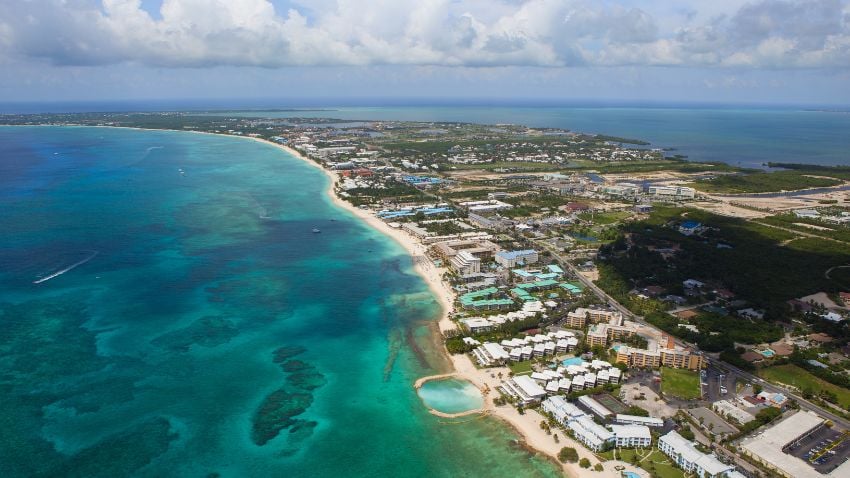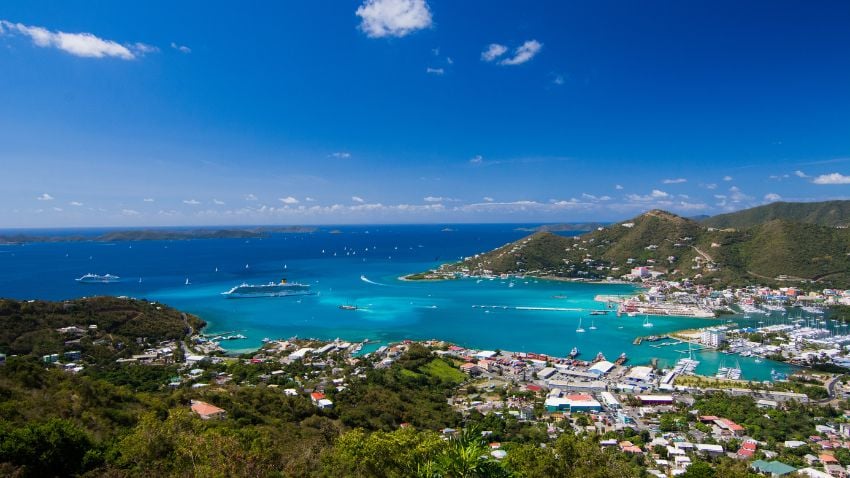Best Cities To Live In Mexico In 2026
Mexico remains one of Latin America’s most compelling destinations, especially for North Americans. More than a million expats call it home, and tens...

4 min read
Medical professionals like doctors, surgeons, and nurses face immense pressure every single day. After years of tireless study, they achieve the qualifications necessary to perform a job dedicated to healing, helping, and even saving lives.
However, one particular threat is always lurking, potentially demolishing many decades’ worth of effort serving their community. This threat is none other than legal entanglements. This ever-present reality makes these professions more complex and daunting, as professionals risk losing everything they have worked so hard for.
In this article, we’ll dive into the knowledge and strategies needed to protect your assets in the event of lawsuits, and explain why going offshore can make all the difference.
Let’s begin.

Protect yourself from laws that drastically deteriorate your privacy
Without proper protection, you risk losing everything you worked so hard for over the course of your career. Imagine being sued by a patient and losing your home, savings, and investments. It’s a frightening thought, but the good news is that the correct strategies can help you avoid these highly unpleasant situations.
Being aware of this danger, medical practitioners opt for increased levels of protection that often involve domestic wealth protection structures such as trusts, foundations, and corporations. The primary purpose of these structures is to place some assets in a name other than your own. While this is a great place to start, it may not be sufficient on its own, as this additional layer of protection is still under the scrutiny of your country’s legal system.
Take the example of the United States. Not only is the U.S. the most litigious nation in the world, but the recently approved Corporate Transparency Act (CTA) requires many businesses to disclose beneficial ownership information. This law has drastically deteriorated the privacy some entities once offered, thus increasing the exposure to legal challenges on American soil. Privacy is under attack in multiple other countries as well, so solely using domestic options might not be the best choice for professionals in the medical field.
Furthermore, another common mistake is relying on the supposed fairness of your home country’s judicial system. Many healthcare workers believe that the court system will adjudicate fairly based on the case’s merits. Unfortunately, we cannot neglect the unpredictability and capricious nature of legal proceedings. A lawsuit can result in significant financial losses.
Although believing in the fairness of your country’s court system might be reasonable on paper, the reality is typically far from the ideal we envision of justice. In many countries like the US and Canada, a lawsuit in a case of personal negligence or malpractice could destroy the reputation and net worth of a medical practitioner for life.

Grand Cayman, Cayman Islands
As you can tell, the conventional strategies are not without their blemishes. Of course, you can set up a trust or foundation in your country to enjoy an extra level of protection, but that still might not be enough. That’s why, in this section, we’ll dive into offshore options to keep your assets outside the reach of your country’s legal system.
Offshore structures, such as trusts and foundations in jurisdictions like the British Virgin Islands, Cayman Islands, Panama, and the UAE, are interesting alternatives to consider. Unlike domestic options, these offshore structures offer increased protection and privacy from domestic legal proceedings. For instance, an offshore trust in the Cayman Islands may safeguard a physician’s assets from US-based legal claims, as they fall outside the scope of the US court system. This layer of protection may be crucial in protecting retirement funds and family inheritance that could be decimated in a legal dispute.
Every medical professional’s circumstances are unique, calling for a personalized wealth protection approach. Regardless of how litigious your country may be, you can look outside its confines and find a solution with the proper set of advantages. A surgeon with a diversified portfolio might find a Panamanian Private Interest Foundation the right fit for its flexibility and control. At the same time, a general healthcare provider might choose the UAE for its strict privacy laws. The bottom line is that each individual’s needs should align with the proper jurisdiction and structure to maximize asset protection.
A key advantage of offshore banking is that many jurisdictions do not recognize foreign court orders. As opposed to brutal asset confiscation and orders to freeze bank accounts in Western nations, keeping your money outside your country’s borders adds an extra layer of security. For example, a US court ruling would not automatically apply to assets held in the BVI, protecting them from domestic legal actions.

How the British Virgin Islands Political Infrastructure Can Benefit Expats
Going offshore might look like a risky move. Some typical concerns include legality, government persecution, and reporting requirements. As a seasoned expat consultant with almost 25 years of overseas experience, I will never deny that operating offshore is anything but easy. You must stay compliant throughout the process. The last thing I want for my clients is to be charged and spend multiple years in jail for tax evasion. My job is to help you obtain more freedom, not less.
That said, let me make it clear that, if done right, offshore banking is perfectly legal and can save you thousands of dollars. Of course, your tax obligations will vary depending on multiple factors such as your residency, citizenship, and income source. I cannot work with my American clients the same way I do with my Canadian ones. Each individual’s situation is different, so personalization is key to developing a proper offshore strategy.
Even though many still believe that offshore banking is something only billionaires and big businesses do, the reality is that this realm is more accessible than it seems. It’s true that international banking regulations are daunting, but so is the medical profession. Just like attorneys invest years of their time into their education to become top-notch professionals, medical specialists have dedicated years of their lives to studying and perfecting their skills.
For instance, if you’re a highly paid surgeon, you’ll probably not know about all the laws that offshore banking involves, and that’s okay. Your patients trust you when they need surgery, and you can trust legal and financial advisors who will demystify the process and ensure you keep as much money and wealth as possible – all while staying compliant.

Don't get caught up in the limitations of professional investments if you want to secure your wealth
Offshore banking and wealth protection is a complex field that requires strategic planning and expert knowledge. Conventional methods, such as holding everything under your own name and even resorting to domestic asset protection structures, have their own share of limitations. First, they’re within the reach of your country’s court system, and second, they might not offer much privacy.
Thankfully, offshore jurisdictions can protect you and your assets against lawsuits in case of negligence or malpractice. Holding some wealth outside your country can make all the difference in the event of creditors, former spouses, and greedy governments wanting to get what you’ve worked so hard for.
Information is a commodity these days, and studying all the laws by yourself is generally not feasible. Just like patients use your medical services when they need you most, you need to surround yourself with experts. If you want to go offshore and protect your wealth, you can fill out the application form to work with us, and I’ll see how we can help you find solutions aligned with your professional and personal goals.
If you want the best intel from the expat world, including profitable offshore opportunities, little-known tax-saving strategies, and hard-won insights on immigration, passports, and Plan-B residencies, all delivered to your inbox every single week, then join our daily correspondence, EMS Pulse®. Currently enjoyed by over 84,000 expats and expat-hopefuls worldwide. Fill in the form below to join our newsletter free:

Written by Mikkel Thorup
Mikkel Thorup is the world’s most sought-after expat consultant. He focuses on helping high-net-worth private clients to legally mitigate tax liabilities, obtain a second residency and citizenship, and assemble a portfolio of foreign investments including international real estate, timber plantations, agricultural land and other hard-money tangible assets. Mikkel is the Founder and CEO at Expat Money®, a private consulting firm started in 2017. He hosts the popular weekly podcast, the Expat Money Show, and wrote the definitive #1-Best Selling book Expat Secrets - How To Pay Zero Taxes, Live Overseas And Make Giant Piles Of Money, and his second book: Expats Guide On Moving To Mexico.

Mexico remains one of Latin America’s most compelling destinations, especially for North Americans. More than a million expats call it home, and tens...

South Korea is far more than K-pop and K-dramas. It is a country known for outstanding food, from bustling street markets to high-end dining, as well...

Asia is one of the most fascinating regions in the world for travel, offering an extraordinary mix of cultures, histories, and landscapes. From...